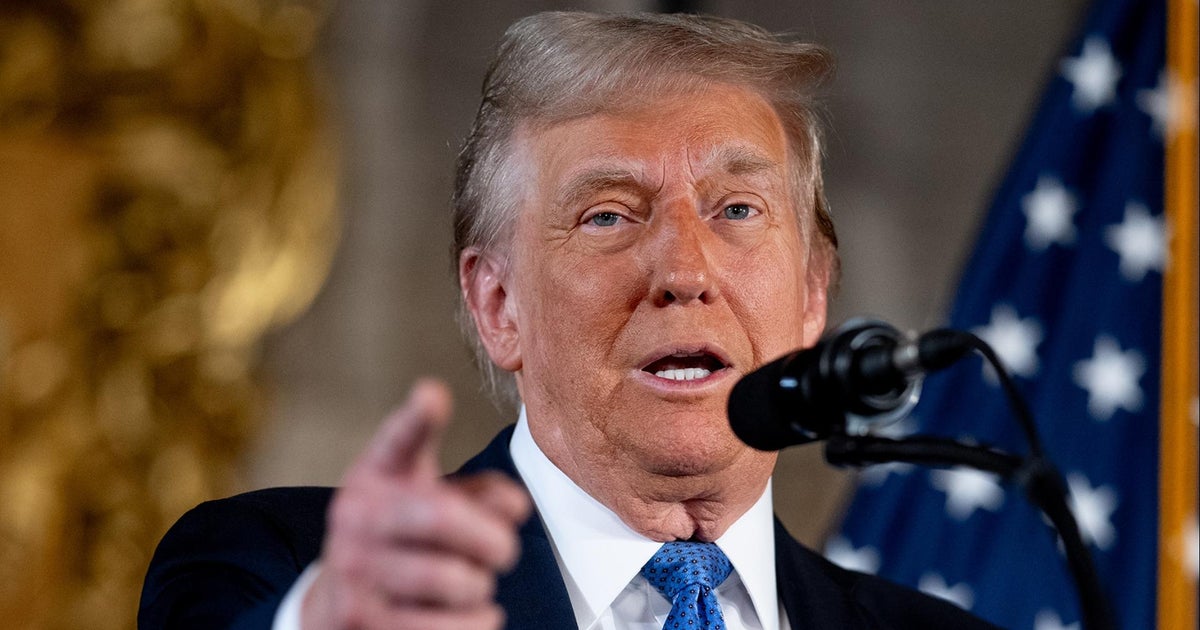Bolton says Russia controversy highlights Trump's "lack of interest in intelligence"
Washington — Former national security adviser John Bolton said the Trump administration's handling of allegations that a Russian spy agency was offering bounties to Afghan militants to kill U.S. troops showcases President Trump's "lack of interest in intelligence."
"The purpose of the briefing process is to meet the particular needs of the president and present it to him in the way that best suits his desires. The problem with Donald Trump is not that he is not receptive to one means or another. He's just not receptive to new facts," Bolton told CBS News chief Washington correspondent Major Garrett in an interview for this week's episode of "The Takeout" podcast. The episode will be available for download Friday morning and air in its entirety on CBSN on Friday and Saturday at 9 p.m. ET.
Bolton said the president's intelligence briefings do not contain as much information as they should, which he attributed to the president's preferences for consuming intelligence.
"It's not that the intelligence community is failing, it's that the president doesn't value this information as highly as his predecessors have, and as highly as he should," Bolton continued. His new memoir documenting his time in the White House, "The Room Where It Happened," is published by Simon & Schuster, a division of ViacomCBS.
The longtime conservative foreign policy hand declined to comment on reports that he had been involved in briefing the president on the intelligence in 2019, but said he believed he could discuss news reports about the intelligence following comments by current national security adviser Robert O'Brien in an interview Wednesday morning. O'Brien said a senior career CIA officer who briefs Mr. Trump in person made the decision not to present him with the allegations because the officer lacked confidence in the credibility of the intelligence.
Bolton said the veracity of intelligence falls along a spectrum, but he believed the allegations were important enough to warrant briefing the president personally.
"It's a complex process and there's no point where it gets to be, you know, just right like in Goldilocks and three bears, and then you run in and tell the president," he said. "You don't take everything in to the president, but when American troops are threatened by an adversary like Russia in this way, if there's any indication this is an ongoing operation, it's something the president needs to take into account."
Bolton said he agreed with Susan Rice, the former national security adviser in the Obama administration, who wrote an op-ed on Tuesday criticizing the Trump administration's handling of the intelligence.
"She said she would have walked in and shown it to Obama," Bolton said. "I would have done the same if — I hope I would have done the same if I had this kind of information."
White House press secretary Kayleigh McEnany has repeatedly denied that the president was briefed on the allegations.
"There was not a consensus among the intelligence community," McEnany told reporters at Monday's White House press briefing. "In fact, there were dissenting opinions within the intelligence community, and it would not be elevated to the president until it was verified."
Bolton said the changing explanations from the White House about Mr. Trump's knowledge of the allegations raise doubts about the president's engagement on serious issues.
"The demonstration of the confusion inside the White House only gives our adversaries the stronger impression that the president simply doesn't pay attention to what he's being told, or to thinking systematically about how you respond to it," Bolton told Garrett.




